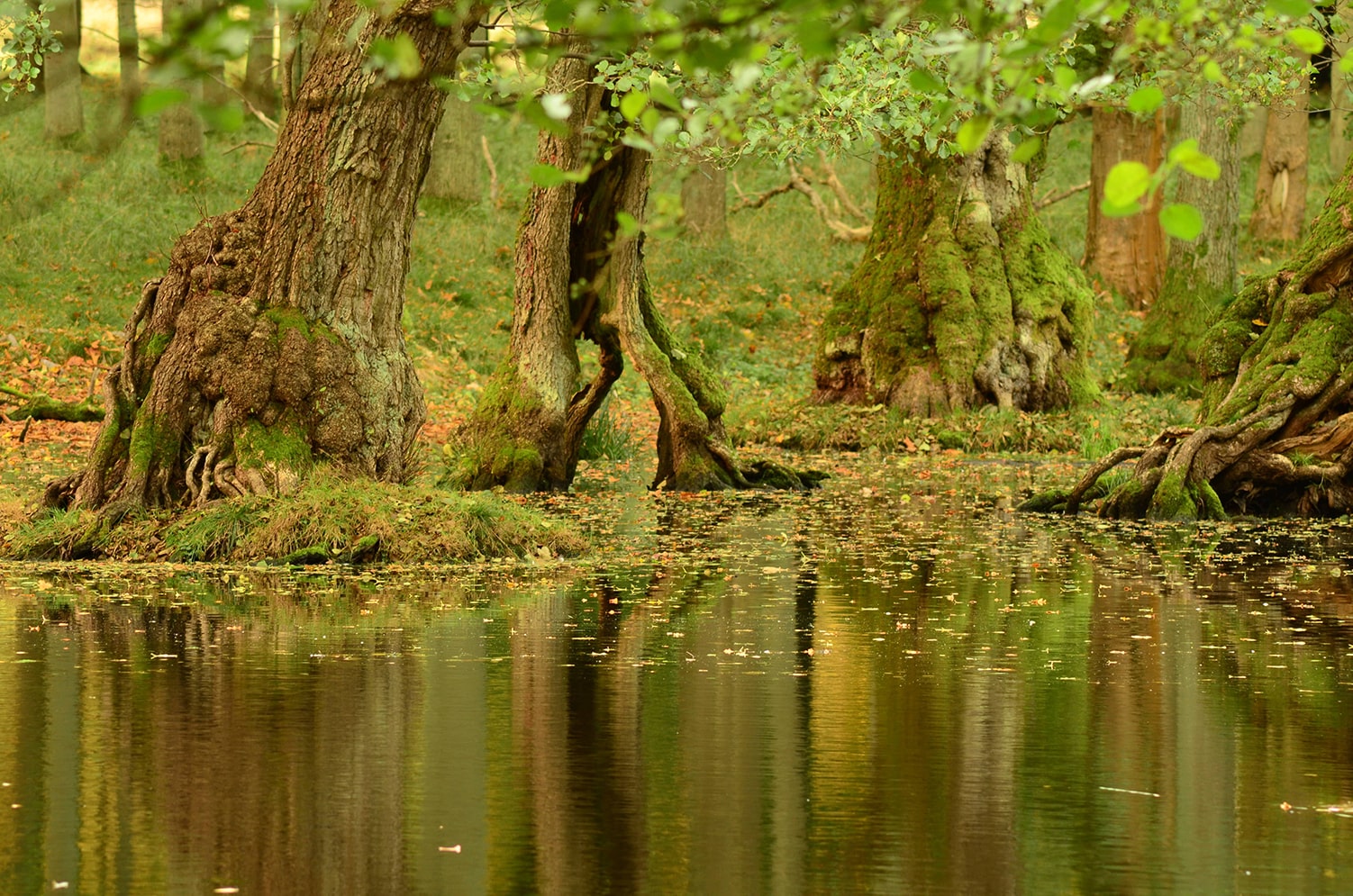Small ponds - large impact
Ponds are freshwater (sometimes saline) water bodies with a size of less than 10 hectares. They can occur in gardens, cities, farmlands, grasslands and woods. Their wildlife is extremely diverse, as ponds provide habitat for biota from microscopic organisms through plants and invertebrates to vertebrates.
All about natural ponds
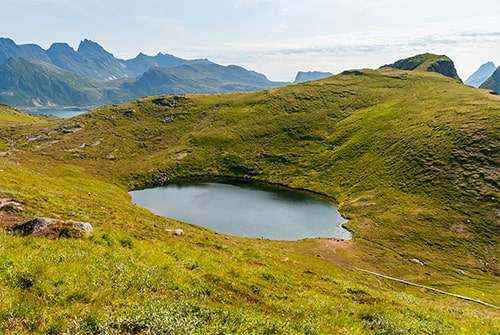
Geological evidence show that natural ponds have been on earth for millions of years. Over this long period of time, many plants and animals have adapted to wetlands, the survival of which has since depended on the presence of ponds. Ponds can come in many different shapes and sizes, and their water depths can range from a few centimetres to several meters. We can find ponds among them that have not changed over millennia, and also short-lived ones, so called intermittent ponds that last for a few weeks only. Unfortunately, the numbers of natural ponds in Europe has been declining and the reason for the decrease is for the most part due to human activities, such as:
Continuously growing and intensifying agricultural activities.
Regulation of rivers and floodplains and associated drainage.
Did you know?

The millions of small waterbodies (less than 10 hectars) make up to 30% of the planet’s fresh water reserve surface area.
All about artificial ponds
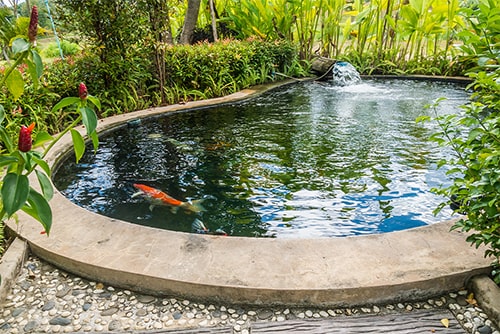
For the last few thousand years, people have not only destroyed wetlands, but also created ponds for industry, agriculture, and to create beauty in the landscape. Urban ponds were almost always created by humans and often have different environmental characteristics than their non-urban counterparts:
Their foundations are often made from concrete or plastic, etc.
There is less vegetation.
They are seldom connected to other water bodies.
Municipal and industrial pollutants come into contact with them more often and in higher concentrations.
Nevertheless, research results suggest that artificial ponds are not fundamentally ecologically different from natural ponds; thus, man-made ponds can play an important role in nature conservation and habitat protection.
Small ponds and biodiversity
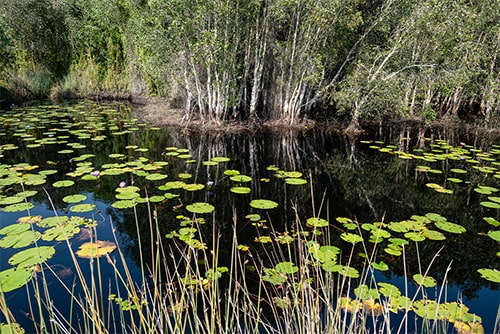
Small-scale wetlands, such as small ponds, are crucial for biodiversity. Urban ponds, despite significant anthropogenic pressures, are extremely important ‘hotspots’ for biodiversity, as well as providing vital ecosystem services to offset the negative effects of urbanization.
Did you know?

So-called biodiversity hotspots refer to sites that are exceptionally rich in biodiversity. These are usually endangered areas, perhaps the best known are the species-rich rainforests.
Did you know?

Ecosystem services are gifts that nature gives us. These gifts — such as trees in the forests with their fruits, feed and shelter for animals, and clean and beautiful environment for us. All this is not only useful, but downright essential to us, to the individual, and the society, including the healthy functioning of any local communities.
What do small ponds “provide” us with?
Ponds, and their networks offer a wide variety of habitats for rare and protected species, including small vertebrates, amphibians and aquatic plants.
At the level of the natural environment, ponds have been shown to contribute to biodiversity to the same extent as rivers or other larger water bodies.
Wildlife is provided with stepping stones between larger freshwater habitats.
Ponds provide food for the species living in the given habitat (in the form of insects and plants), provide shelter and drinking water in dry conditions. This is especially important in an environment where there is a lack of natural habitats for wildlife.
Overall, ponds support more species, both rare and protected, than any other freshwater habitat.
Did you know?

Ponds provide habitat for nearly two-thirds of freshwater organisms!
Can ponds reduce the effects of global warming?
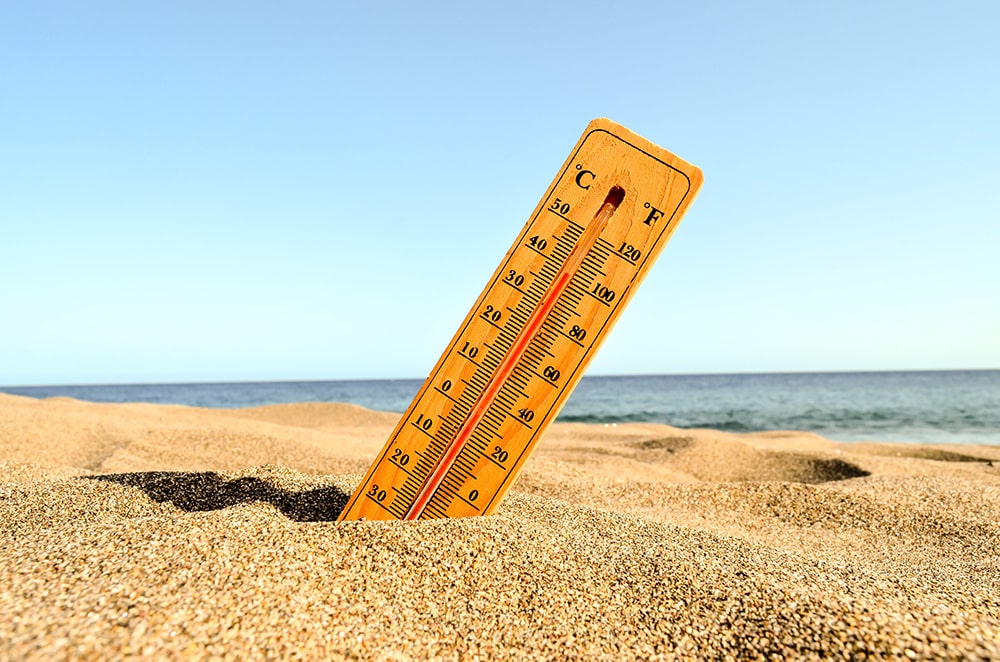
Ponds have the potential to make a significant impact on major environmental challenges that affect us all, such as climate change, floods and pollution. The role of ponds in fighting climate change is worth highlighting. Research results show that open water is the most effective in reducing the so-called Urban Heat Island (UHI) effect in urban areas. A small pond in the back garden can reduce the temperature around you by up to several degrees.
Did you know?

The Urban Heat Island effect (“UHI”) is a microclimatic phenomenon that occurs primarily in large cities. The point is that the temperature in the built-up urban area is higher than in rural and peri-urban areas.
In addition, they can remove contaminants from surface waters, play an essential role in water management, and their recreational and landscape utilization cannot be neglected. Not only are they useful, but they are beautiful as well!
